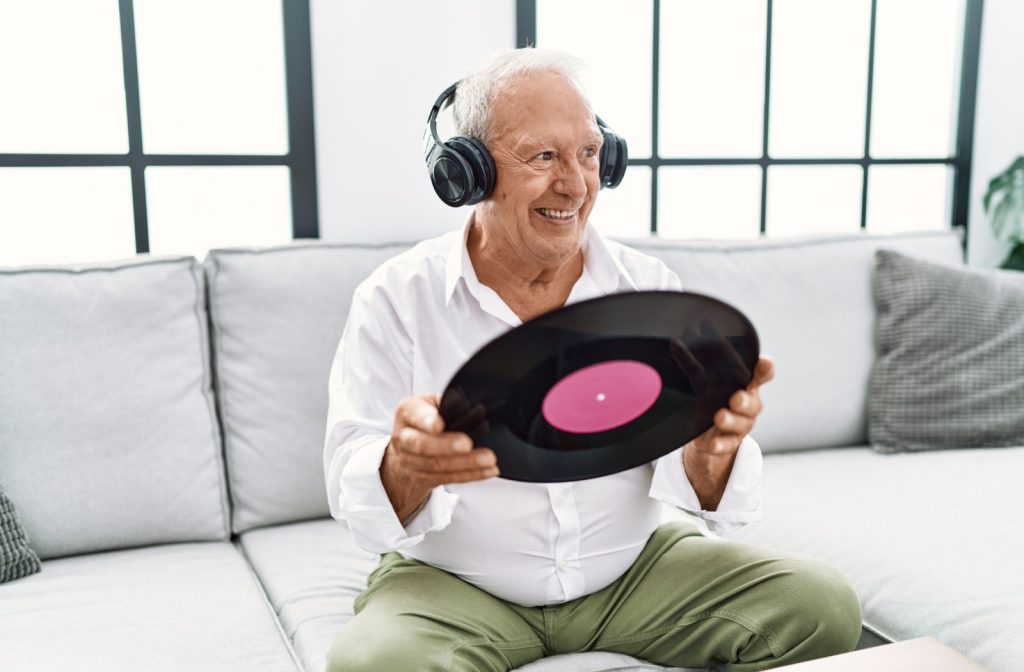Whether it’s easing tension in the body or unwinding after a busy day, relaxation isn’t just a luxury, it’s essential for seniors to maintain their physical and mental well-being. As life slows down, taking the time to relax not only relieves stress but also contributes to better sleep, reduced pain, improved mood, and lower blood pressure.
This guide will walk you through the best relaxation techniques tailored specifically for seniors, such as yoga, meditation, music therapy, aromatherapy, creative hobbies, and more. Whether you’re a senior yourself, a caregiver, or someone deeply invested in senior wellness, these approaches are easy to practice and effective at nourishing the body and mind.
Why Relaxation Is Vital for Our Residents
Relaxation becomes even more important in our later years. Our residents often face unique life challenges like health concerns, body aches, or the emotional weight of changes in family or social dynamics. Relaxing helps alleviate stress, enhances focus, and maintains emotional balance, leading to a higher quality of life.
1. Deep Breathing Exercises
What it is: Deep breathing, also known as diaphragmatic breathing, involves slow, purposeful breaths that engage the diaphragm. It helps supply oxygen to the body and calm the nervous system.
How to practice it:
- Find a quiet, comfortable place to sit or lie down.
- Place one hand on your chest and the other on your stomach.
- Take a deep breath in through your nose for four counts, allowing your stomach (not your chest) to rise.
- Hold your breath for four counts, then exhale through your mouth for six counts.
- Repeat this process for five minutes.
Why it’s effective: Deep breathing reduces cortisol levels, the hormone responsible for stress, and promotes a sense of calm.
2. Gentle Yoga or Chair Yoga
What it is: Yoga combines gentle stretches with mindfulness and deep breathing. Chair yoga is an excellent alternative for seniors with limited mobility, offering modified poses while seated.
How to practice it:
- Join a local yoga class specifically designed for seniors. Many senior centers offer beginner-friendly classes.
- There are also online chair yoga videos that demonstrate safe and simple movements for relaxation.
Why it’s effective: Yoga provides both physical and mental relaxation. It eases joint and muscle tension and improves flexibility, all while nurturing a sense of mindfulness.
Popular poses like “Child’s Pose” or “Cat-Cow” can release tension in the back and neck, areas where seniors often store strain.
At Holbrook, our WellFIT fitness programs include yoga classes, as well as other options for an incredible, low-impact workout. We can help build you a customized wellness program that aligns with your abilities and meets you on your terms.
3. Meditation and Mindfulness
What it is: Meditation encourages focusing on the present moment, often by observing the breath, a mantra, or simple sounds. It’s a powerful tool for achieving inner peace.
How to practice it:
- Set aside 5–10 minutes to sit quietly each day.
- Focus your attention on your breathing or use a guided meditation app designed for seniors, such as Calm or Insight Timer.
- If sitting still doesn’t feel natural, try mindful walking, paying attention to each step and your surroundings.
Why it’s effective: Meditation reduces stress and promotes emotional well-being. For seniors, it has been shown to improve cognitive function, boost memory, and lower signs of anxiety or depression.
We encourage our residents to approach meditation without pressure and remind them there’s no “one right way” to do it.

4. Listening to Music
What it is: Music therapy taps into the soothing and emotional power of music to create relaxation and improve mental health. Whether it’s classical music, calming instrumental tunes, or nostalgic songs from earlier decades, music can be deeply relaxing.
How to practice it:
- Create a playlist of favorite relaxing songs or nature sounds.
- Sit back and enjoy the music with headphones or speakers.
- Consider attending live music therapy sessions that cater to seniors.
Why it’s effective: Music encourages the release of feel-good hormones (like dopamine), which boosts mood and alleviates stress. For our residents with cognitive challenges, like dementia, familiar tunes can also stir warm memories and foster connection.
5. Aromatherapy
What it is: Aromatherapy uses essential oils to create a calming environment. The natural fragrances from oils like lavender, chamomile, or peppermint encourage relaxation and sleep.
How to practice it:
- Use a diffuser to fill the room with essential oils.
- Add a few drops of lavender oil to a warm bath or place it on a pillow for nighttime relaxation.
- For safety, always check with a healthcare provider to ensure that the oils won’t interact with medications or allergies.
Why it’s effective: Aromas trigger the limbic system in the brain, which controls emotions.
6. Gentle Outdoor Walks
What it is: Fresh air, sunshine, and light activity can refresh the mind and body. Even a short stroll through a nearby park has remarkable relaxation benefits for seniors.
How to practice it:
- Find a safe place to walk, like a flat walking trail or a neighborhood path.
- Take a slow-paced walk of 10–20 minutes, focusing on the natural surroundings.
- Invite a walking buddy to enjoy a social element, if preferred.
Why it’s effective: Nature walks reduce cortisol and improve mood.
7. Journaling
What it is: Journaling helps our residents express their emotions, reflect on meaningful memories, or keep a record of things they’re grateful for.
How to practice it:
- Encourage a daily journaling habit for 10 minutes.
- Use prompts like, “What made me smile today?” or “What am I grateful for right now?”
- A simple notebook and pen work perfectly, no fancy setup required.
Why it’s effective: Writing down thoughts helps process emotions and provides clarity.
8. Engaging in Creative Hobbies
What it is: Activities like painting, knitting, gardening, or even piecing together a puzzle allow seniors to immerse themselves in a relaxing, constructive task.
How to practice it:
- Choose a hobby based on personal interest and physical ability.
- Set aside time every week for uninterrupted creativity.
- Join hobby groups (online or in-person) for additional social interaction.
Why it’s effective: Creative hobbies offer therapeutic benefits, encouraging focus, reducing stress, and fostering pride in accomplishing things.
Relaxation at Holbrook
At Holbrook, we are here to help you live a better, more relaxed, and more fulfilled life. We take care of the mundane, so you can focus on living a fulfilling, relaxing retirement. Our wealth of amenities provides something for everyone. Attend a yoga class through our WellFIT program, or relax with a massage or in the sauna at our full-service spa. Or, simply enjoy our beautiful community with relaxing walks around the community, or in one of the many places to lounge with a drink with friends. Regardless of what relaxation means to you, our beautiful community at Holbrook Woodstock has something for you.
Cultivating Relaxation as a Daily Habit
Relaxation isn’t a one-time event; it’s a lifestyle choice that significantly adds to our residents’ well-being. By integrating these techniques into their daily or weekly routines, they can create a healthier, happier, and more balanced life.
Supporting Senior Wellness Together
At Holbrook Woodstock, we believe relaxation is the foundation of a vibrant, purposeful life. If you’re interested in learning more about how we support seniors in creating joyful and balanced routines, feel free to reach out to us. We’re here to help!
